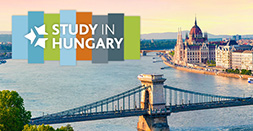During her stay in Transylvania, the President met with Hunor Kelemen, Deputy Prime Minister of Romania, the President of UDMR in Cluj-Napoca, then attended the consecration ceremony of the renovated reformed church of Lopadea Noua in Alba county where she also participated at the common dedication service of ten churches renovated from Hungarian governmental support in Ciumbrud, Lunca Muresului, Alba Iulia, Vintul de Jos, Santimbru, Orastie, Chimindia, Geoagiu, Ighiu, Cricau. In Aiud, the President together with Béla Kató, Bishop of the Transylvanian Reformed Church Diocese unveiled the memorial plaque of the bishop’s house and visited the Gabriel Bethlen College. On the 21st of May, the programme of Katalin Novák, President of the Republic continued in Alba Iulia where she, together with Béla Kató, Bishop of the Transylvanian Reformed Church Diocese and Gabriel Plesa, Mayor of Alba Iulia, unveiled the statue of Prince Gabriel Bethlen in front of the building of the Academic College (Collegium Academicum) established by the prince 400 years ago. At the open-air festive event dedicated to the Hungarian Reformed Unity Day in the historical centre of Alba Iulia, beside Béla Kató, Bishop of the Transylvanian Reformed Church Diocese as host, Hunor Kelemen, Deputy Prime Minister of Romania, the President of UDMR, Victor Opaschi, State Secretary for religious affairs of the Government of Romania and Gabriel Plesa, Mayor of Alba Iulia, the President delivered a speech. Thereafter, the President attended an open-air festive worship service. During the day, Katalin Novák, President of the Republic made a visit to the Saint Michael’s Cathedral where she honoured the tomb of Áron Márton. The President also visited the region of Tara Calatei and the village of Rimetea when she climbed the 1129-meter-high Piatra Secuiului mountain peak in the Trascau Mountains. In her speech delivered on the occasion of the festive event in Alba Iulia, the President emphasized: “we must negotiate and try to reach agreement, seek allies, open doors so that Hungarians have a better and nicer life; so that it will also do those a world of good who are ready to cooperate and form an alliance with us. This represents the future of Central Europe. We shall never sever the umbilical cord, or let it be severed, between the mother country and the Hungarians living outside the borders. Not only the golden age of Gabriel Bethlen and Transylvania does not loosen, but we keep sustaining our bonds, too. ”


